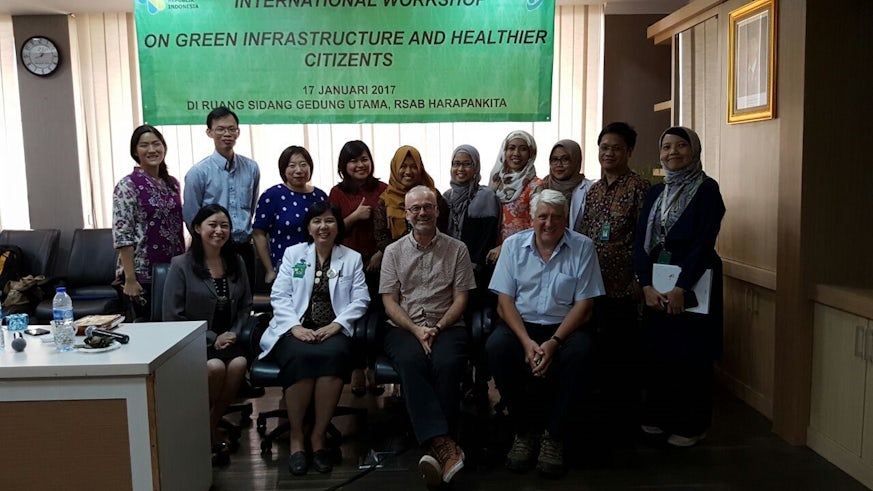Green infrastructure for healthier citizens
27 February 2017

A recent workshop in Jakarta, led by researchers from the Sustainable Places Research Institute, the School of Geography and Planning and the School of Medicine, examined the relationship between health and the environment.
The three day workshop, which ran from the 16-18 January, explored how environmental conditions have both positive (e.g., green spaces as public commons, increasing community well-being and resilience) and negative (e.g. poor air quality causing respiratory illnesses) impacts on citizens’ health, such as the intractable respiratory and gastrointestinal infections that persistently affect urban populations in the Indonesian capital region.
Participants also visited communities and projects where NGOs, staff from Universitas Indonesia, and community members work together to provide green infrastructure as a way of promoting health. Employing a green infrastructure approach, these spaces are able to perform multiple functions. In the communities visited this included establishing a ‘safe space’ for use during flood events, which can also serve as recreational and amenity space, and space for physical activities.
The workshop forms part of a wider programme of work on health and the environment led by, the School of Geography and Planning, the Sustainable Places Research Institute, and School of Medicine at Cardiff University. The work brings together urban planners, architects, environmental activists, community representatives, and medical and social science researchers, in order to understand how human behaviour and the natural and built environments shape human health.
The Jakarta workshop was funded by ESRC/IAA, and held in the Faculty of Engineering and Harapan Kita Women and Children Hospital in the Faculty of Medicine, Universitas Indonesia. The Cardiff team involved Professor Terry Marsden, Dr Andrew Flynn, Dr Andrea Frank, Dr David Tan and Dr Yi Gong.

